Description
Because Ye Belong to Christ
- By John R. Caldwell
- Publisher: Believers Bookshelf
- Publish Date: 1975
- Binding: Hardback
- Pages: 62
Overview
Because Ye Belong to Christ by John R. Caldwell is a collection of Bible papers that explores the foundational aspects of the Christian faith, offering expositions, practical teachings, and thought-provoking articles on various aspects of the Christian life. Written in response to the challenges and changes of his time, Caldwell's work emphasizes the need for believers to remain firm in their faith, especially as the world moves closer to what many view as a spiritual crisis. With an eye toward personal preparation and a deeper relationship with Christ, the book encourages Christians to focus on their identity in Christ as they await His return.
Caldwell's writings offer a perspective grounded in scripture, drawing from his personal journey of faith, his work in Christian ministry, and his commitment to sound doctrine. His firm belief in the plenary and verbal inspiration of the Scriptures, the deity of Christ, the necessity of the atonement, and the coming of the Lord is evident throughout the book. The author also encourages the practice of fellowship among believers, with an emphasis on unity, doctrinal soundness, and separation from the world.
Product Features
- Format: Hardback
- Language: English
- Weight: N/A
- Pages: 62 pages
- Dimensions: Standard book size
Interesting Facts
- John R. Caldwell was born in 1839 and lived a life dedicated to Christian ministry, both as a teacher and writer.
- The book was inspired by the changes in society and the church, particularly in the face of apostasy and the rise of modern theories that questioned foundational Christian beliefs.
- Caldwell’s personal experience, including his conversion in the 1860s and his ministry among the Brethren, deeply influenced his writings, which emphasize the importance of doctrinal clarity and faithful Christian living.
- Because Ye Belong to Christ is one of many books written by Caldwell that have edified the Church, including works on the signs of the times, Christian duties, and doctrinal exposition.
- His views on fellowship and unity, including the reception of all believers who hold to sound doctrine, reflect his lifelong commitment to gospel-centered community.
Publishers
Believers Bookshelf, known for producing valuable Christian literature focused on scriptural teaching, spiritual growth, and the practical outworking of the Christian faith.
We value your feedback! Share your experience with this product to help others make informed decisions. Your review is important to us!
Hashtags: #BecauseYeBelongToChrist #JohnRCaldwell #ChristianFellowship #SoundDoctrine #ChristianMinistry #BiblicalTeaching #BrethrenMovement #ChristianLiving #BelieversBookshelf #FaithInChrist #GospelTruth #ChristianUnity #BibleStudy #ChristCenteredFaith #BuyBooksOnline

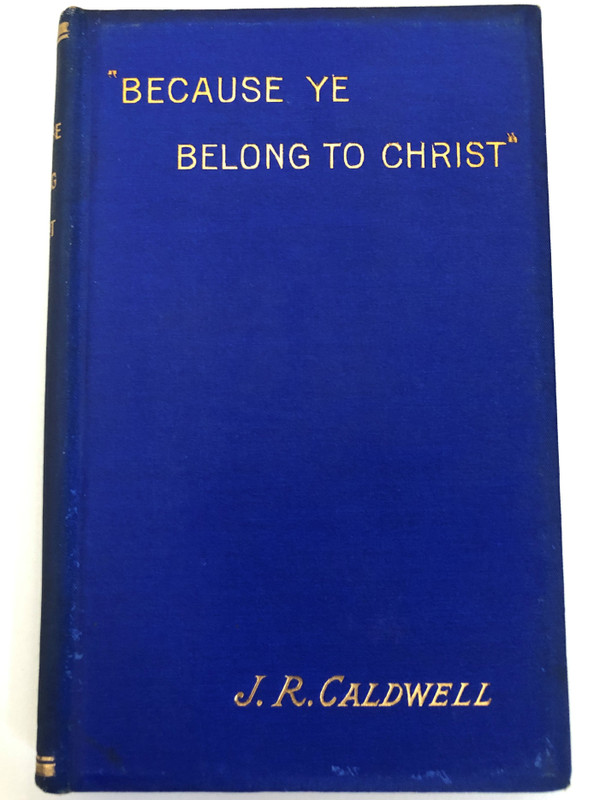
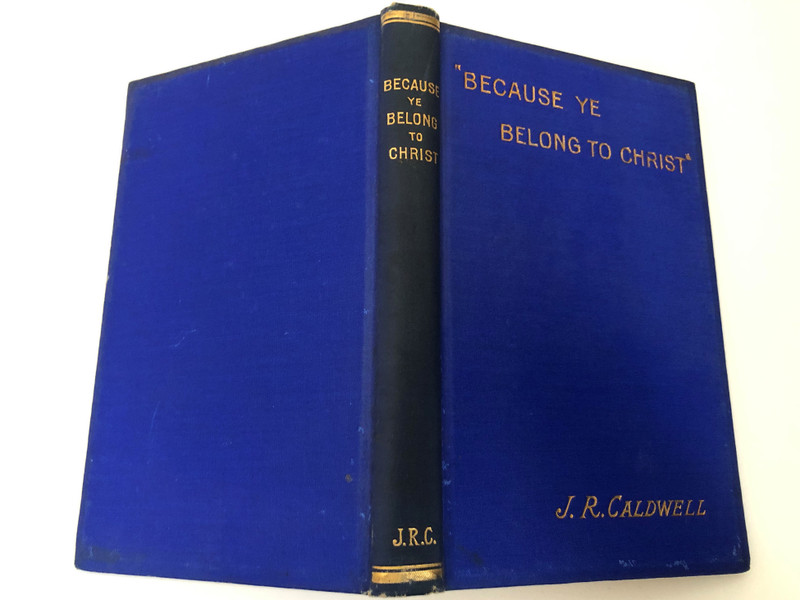
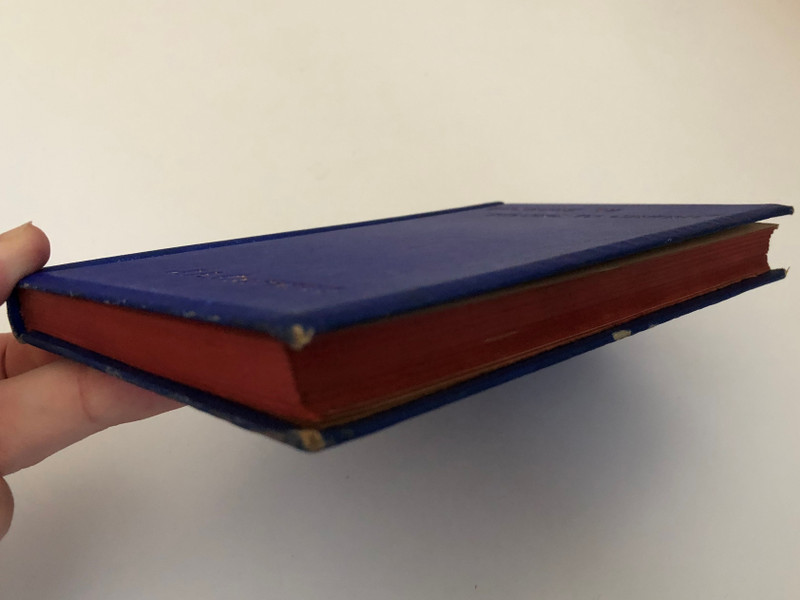
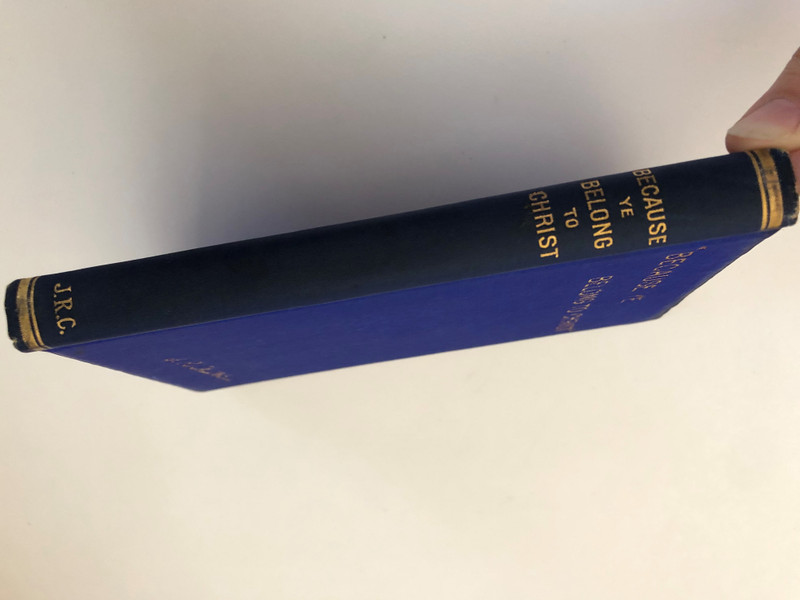
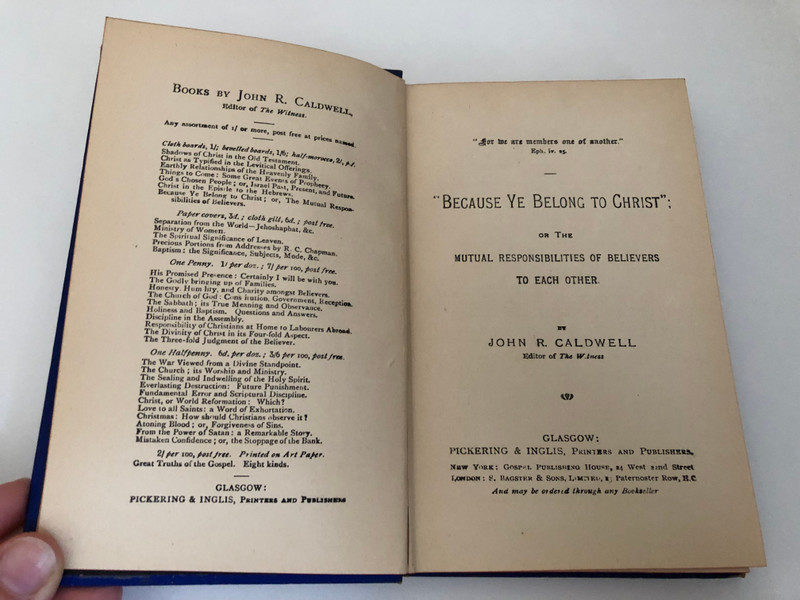
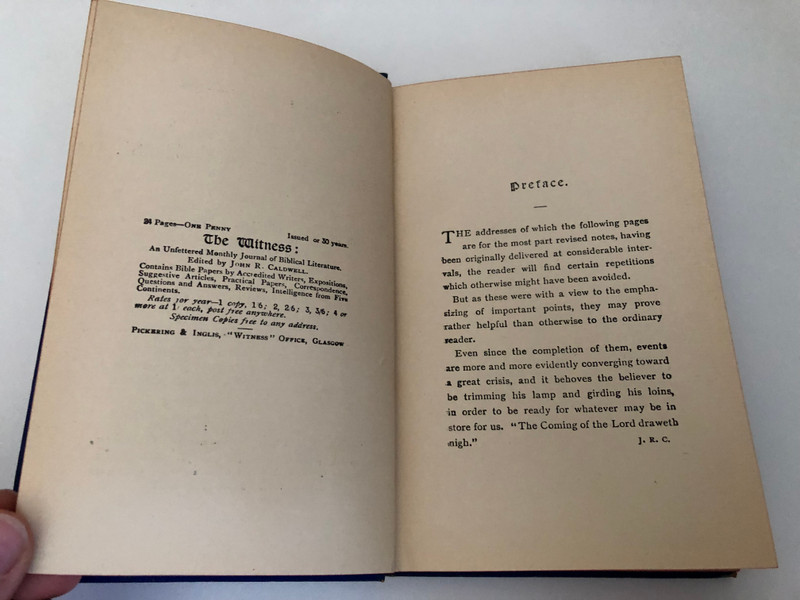
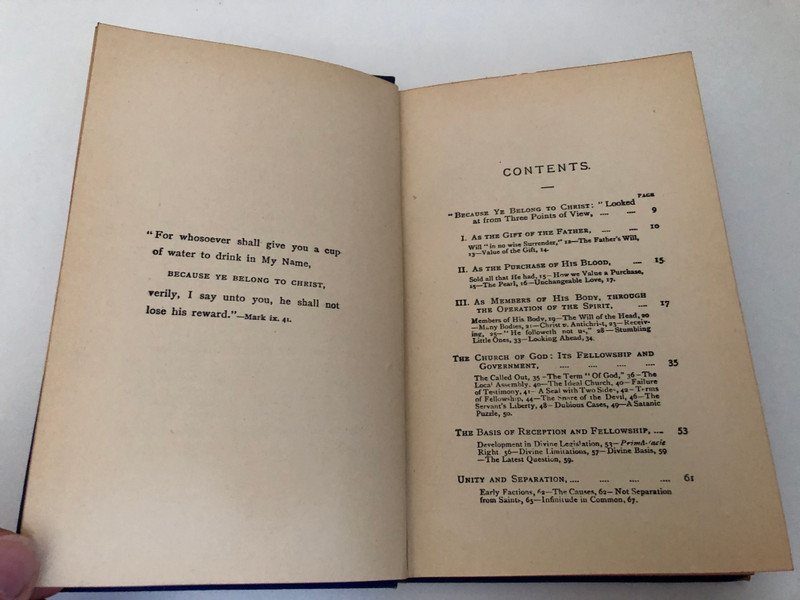
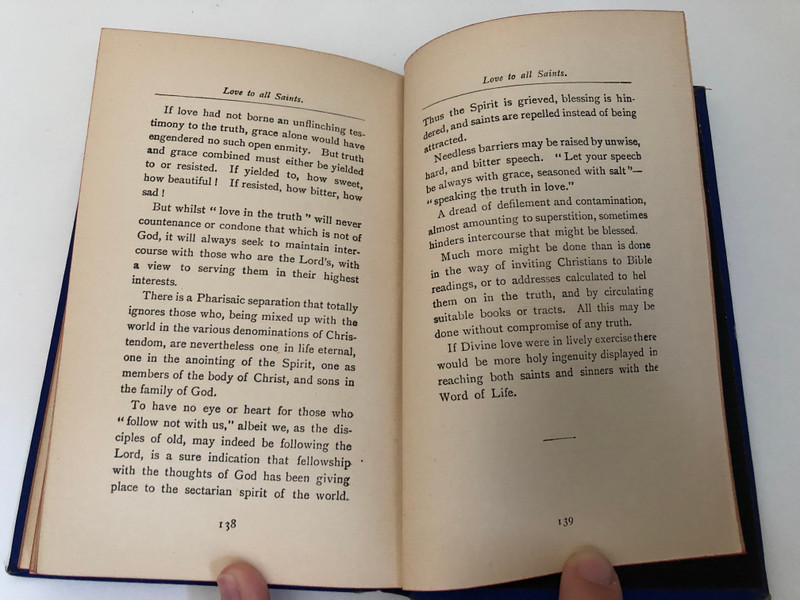
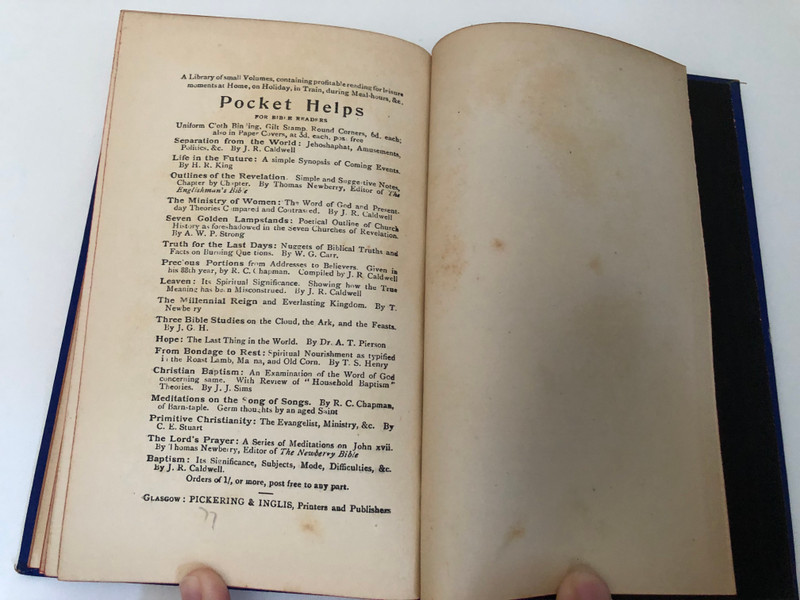
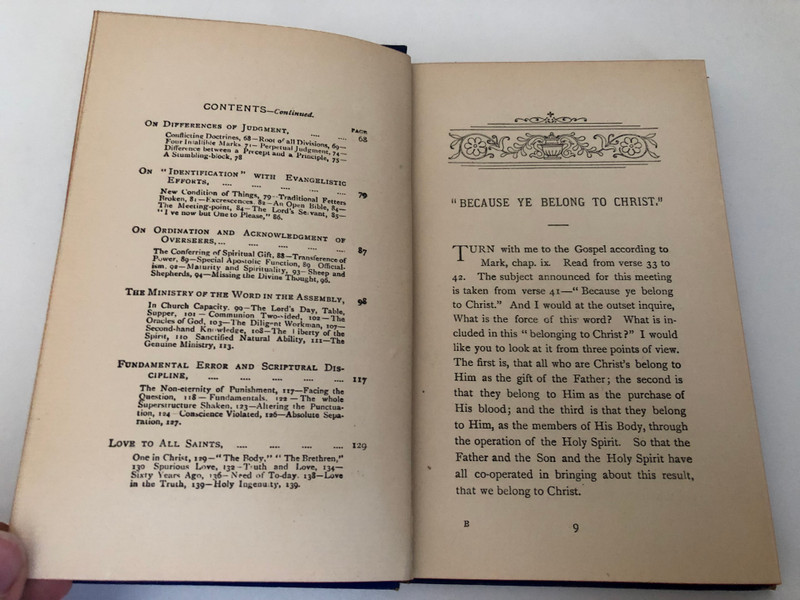
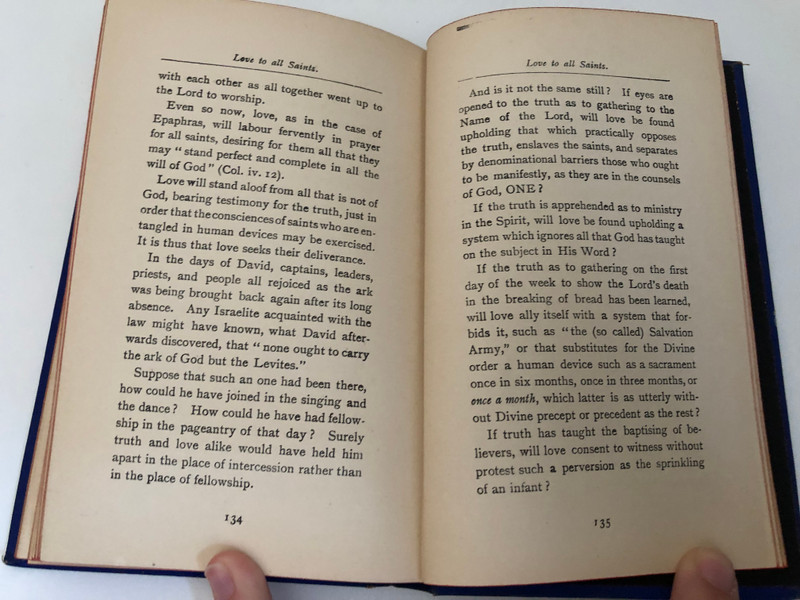
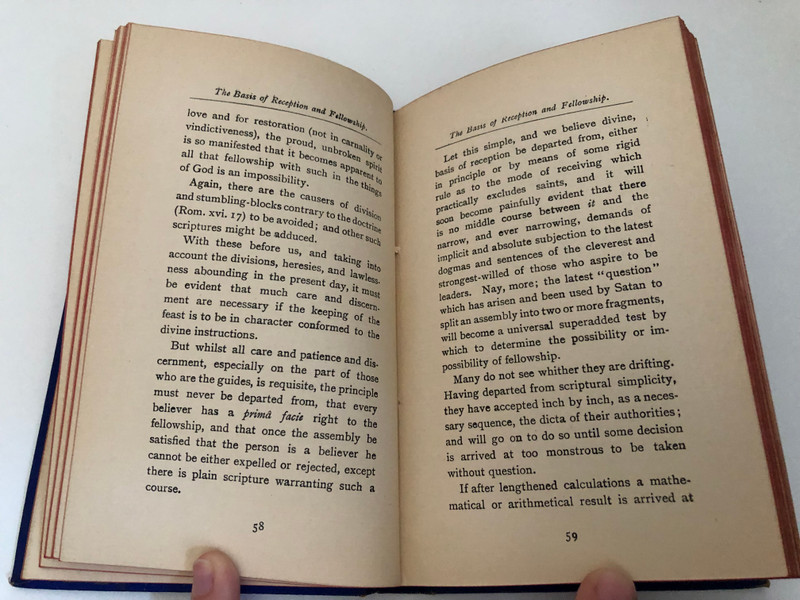
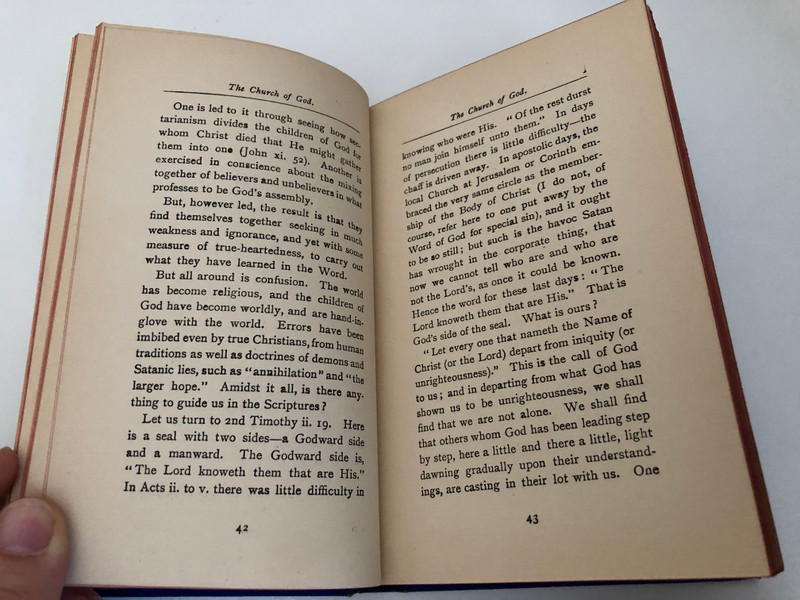
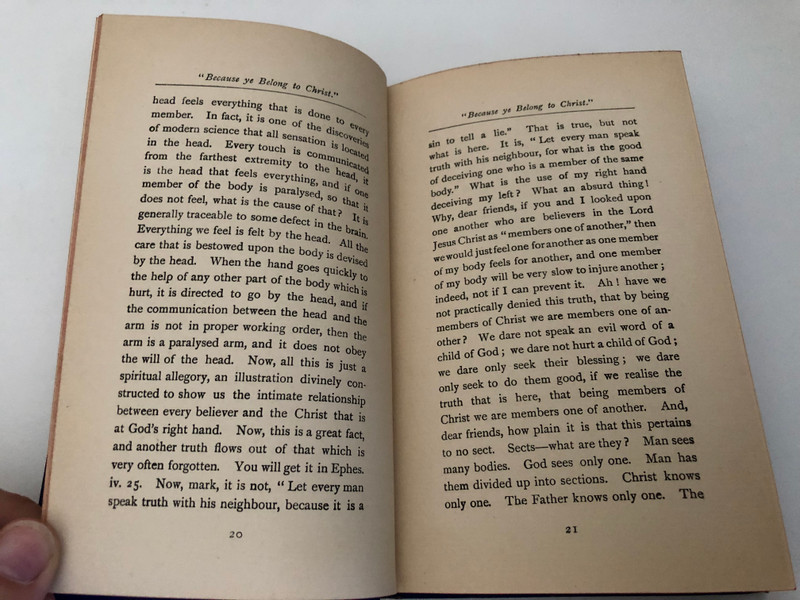
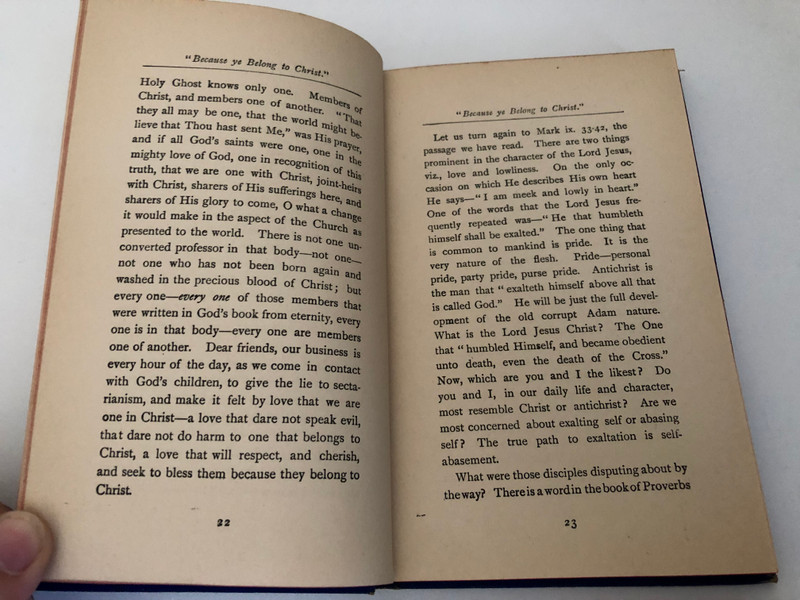
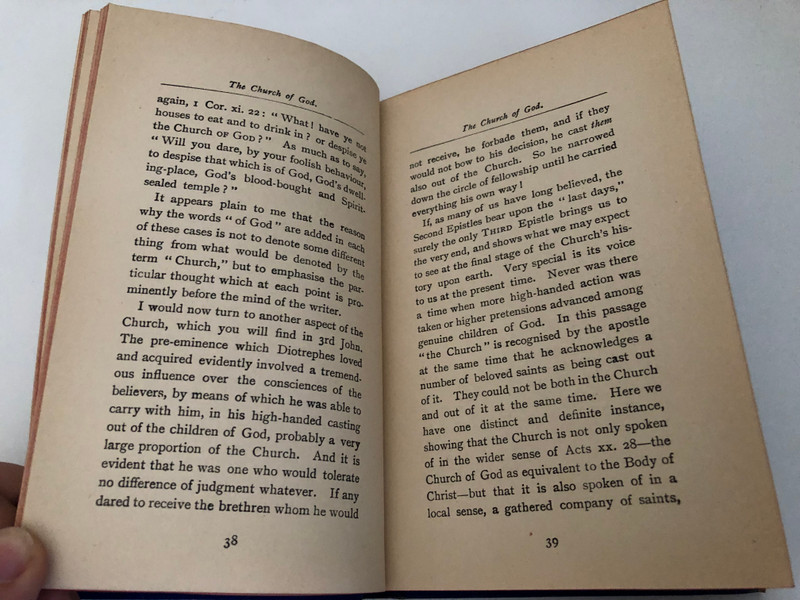























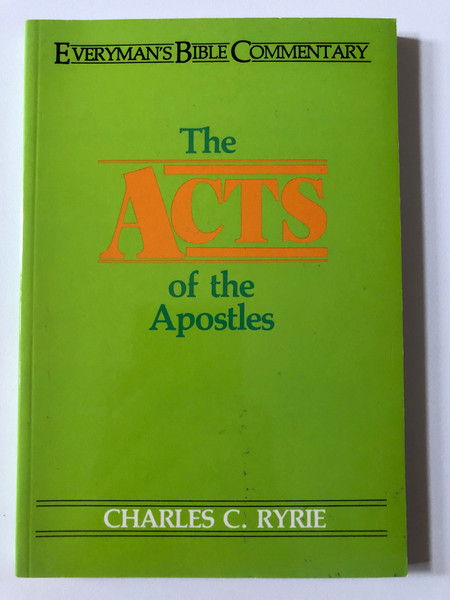

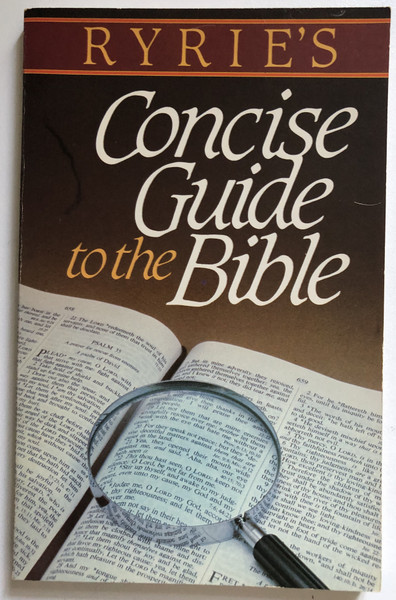



![Ultimate Questions - Dutch - John Blanchard - Bible Answers [Paperback] Ultimate Questions - Dutch - John Blanchard - Bible Answers [Paperback]](https://cdn11.bigcommerce.com/s-62bdpkt7pb/stencil/7b8affc0-2583-013e-4335-3eeb6a002afd/e/075637d0-af27-013d-3d32-3698649f2bdd/img/ProductDefault.svg)